10 Healthy Superfoods You Should Eat Every Day
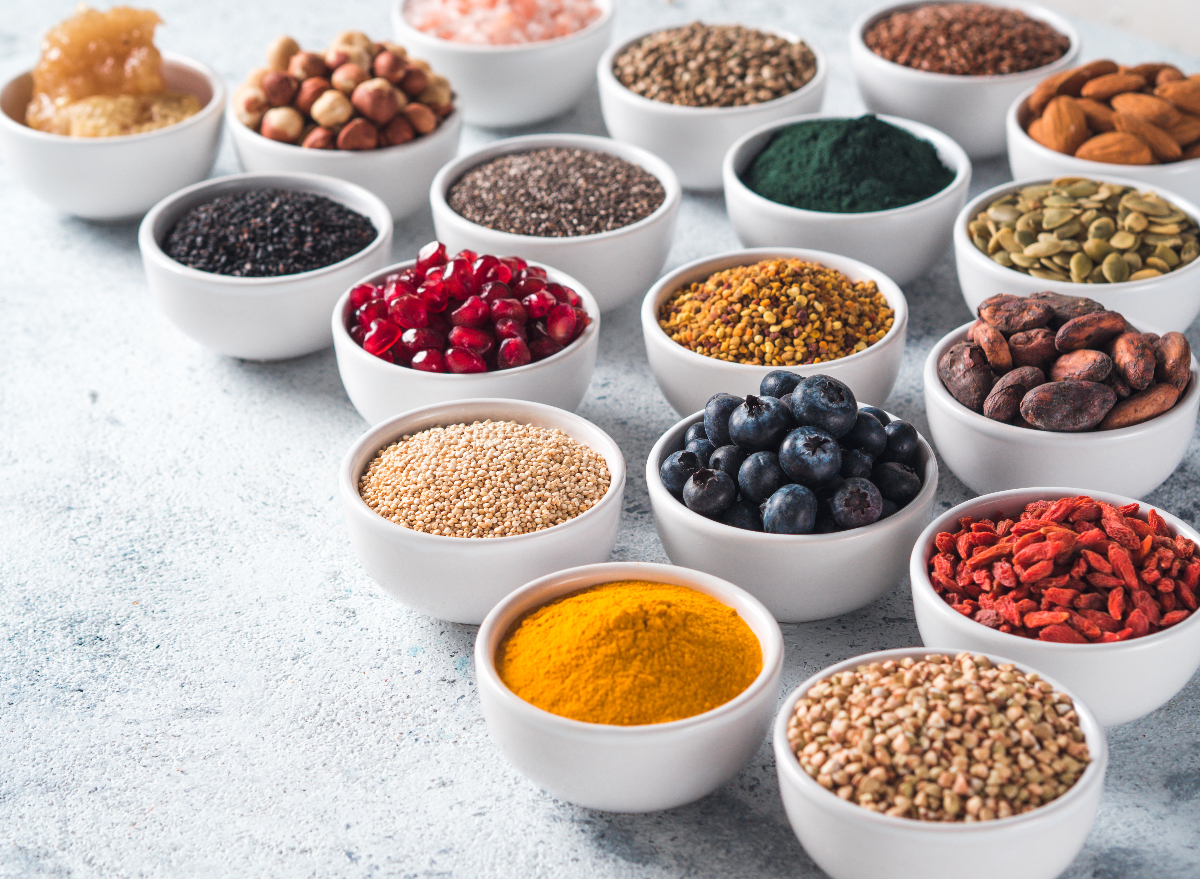
“Superfood” is a term assigned to foods that possess exceptional health properties. While there is no formal definition for the nutrients a food must contain to be considered a superfood, there are generally accepted ideas of what constitutes a superfood. For example, foods that contain high concentrations of antioxidants, fiber, or certain fatty acids that are beneficial to health, could be considered superfoods. Although you may have considered this term to be a trendy nutrition buzzword, there are plenty of reasons to take these foods seriously.
As a rule of thumb, the majority of the foods you eat in a day should be dense in nutrients. This helps to ensure you are consuming adequate amounts of a wide variety of nutrients each day, contributing to your overall health and wellness. There is a long list of nutrients you must consume in order for your body to operate optimally, and some of these nutrients provide exceptional health benefits. For instance, some antioxidants appear to lower your risk of diseases like cardiovascular disease, stroke, and some cancers, and they stabilize free radicals in your body, preventing them from damaging other cells.
Many fruits and vegetables are considered to be superfoods, and some proteins, grains, nuts, and seeds earn the title as well. To make the most out of your diet and support your health to the best of your ability, you should be eating a variety of superfoods on a daily basis. While some can be added to meals you are already enjoying, others can replace your go-to recipes. Here are 10 healthy superfoods you should eat every day. And for more healthy eating advice to take your lifestyle from basic to super, be sure to find out more about why Eating More Superfoods Should Be Your #1 Goal.
Berries
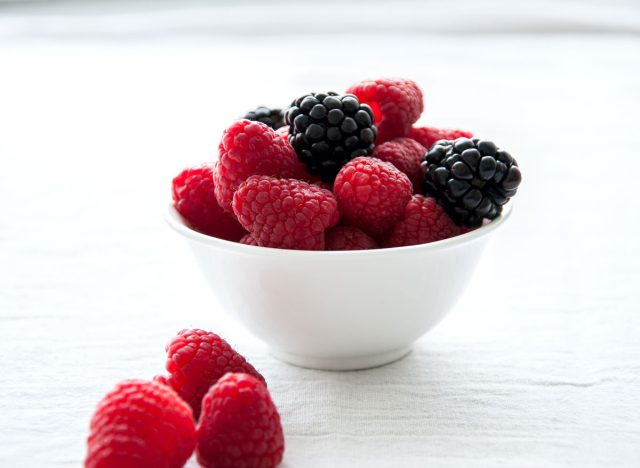
When it comes to this superfood, there are several berries to choose from to meet your flavor and texture preferences. Strawberries, blueberries, raspberries, and blackberries make up the common varietals in this category and are available year-round fresh or frozen. All berries contain notable amounts of fiber and antioxidants and are versatile in their usage.
Berries are also relatively low in calories, allowing them to fit well into a wide range of energy needs. As a superfood, berries contain antioxidants, like anthocyanins and resveratrol, that may reduce inflammation disorders and heart diseases and may help lower your risk of certain cancers. Berries can be added to your morning cereal or oatmeal added into a fruit smoothie or simply enjoyed with cheese or nuts as a snack.
Pomegranate
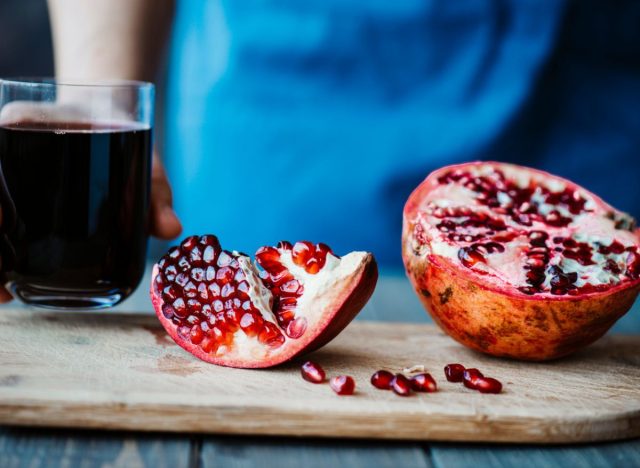
Another antioxidant-packed fruit, pomegranate is known for its unique arils and bold, sweet, and tart flavor. Similar to berries, pomegranate contains a variety of antioxidant compounds that possess a wide range of health benefits. In fact, studies suggest pomegranate appears to lower blood pressure and cholesterol, and researchers have explored the potential contribution of pomegranate in the treatment of cancer, diabetes, and heart disease.
Pomegranate can easily be found in your grocery store during the winter months; however, it may be hard to find the fresh fruit during the summer and spring months. Luckily, pomegranate juice and packaged arils are available year-round and possess the same antioxidants as the fresh fruit. Add pomegranate juice to your favorite smoothie recipe or enjoy a small glass as part of your morning routine, and consider adding arils to your salad, parfait, or oatmeal for a boost of antioxidants.
Oatmeal
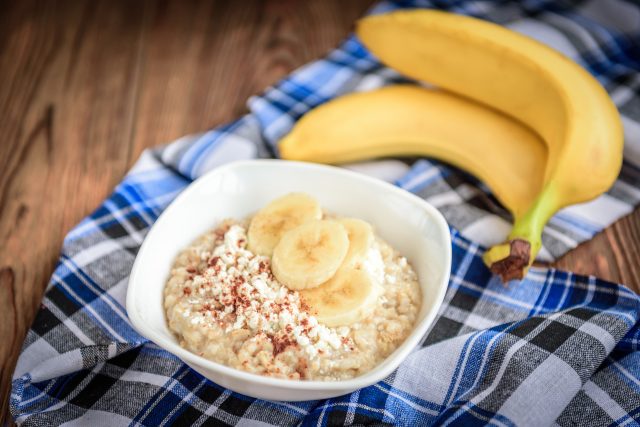
Speaking of oatmeal, it is also considered to be a superfood. A breakfast staple that can also be added to baked goods, enjoyed hot or cold, and even added to smoothies, oatmeal is known for its fiber content. While many foods provide fiber, oatmeal contains both soluble and insoluble forms of this nutrient, which is just one reason to consider oatmeal a superfood.
Soluble fiber can help reduce blood cholesterol levels and improve satiety, while insoluble fiber can promote digestive health and regularity. To boost your daily fiber intake, swap your morning cereal for oatmeal, incorporate oat flour into your baked good, and pair it with other superfoods at meals and snacks throughout the day for added superfood benefits.
Avocado
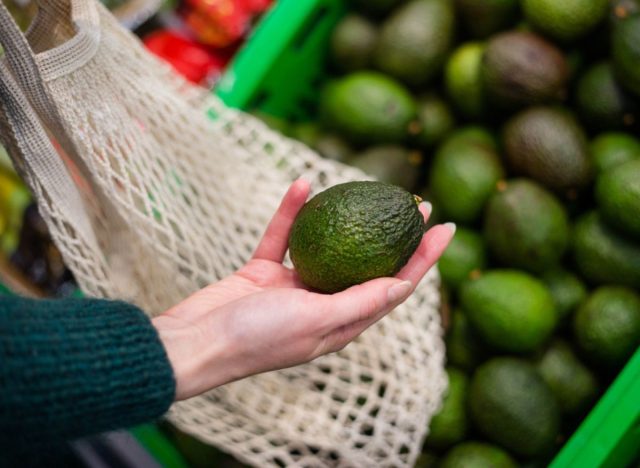
A food that has become wildly popular over the last many years, avocado is versatile and packed with important nutrients. To name only a few, avocado has notable amounts of potassium, folate, vitamin K, and vitamin E, and provides about 13 grams of fiber per 200 grams.
This impressive array of nutrients allows avocado to aid in gut health, improve blood cholesterol levels, and may even help lower body fat. Avocado can be mashed and added to toast, diced and incorporated into your favorite salad or grain bowl, or tossed into a smoothie for low-prep enjoyment.
Eggs

One of the best things about eggs is they can be enjoyed in so many different ways. Scrambled, boiled, or fried, eggs possess a number of properties to make them a superfood. Eggs are a source of protein and are considered to be a complete protein as they contain all essential amino acids.
Additionally, eggs contain lutein, an antioxidant that benefits eye health. Another important nutrient found in eggs in choline, which is needed to make the fats that support the cell membrane and is also a component of acetylcholine, a neurotransmitter involved in regulating your heartbeat, amongst other functions. Enjoy eggs for breakfast, lunch, dinner, or even at snacks for a boost of satiating protein and other important nutrients.
Spinach
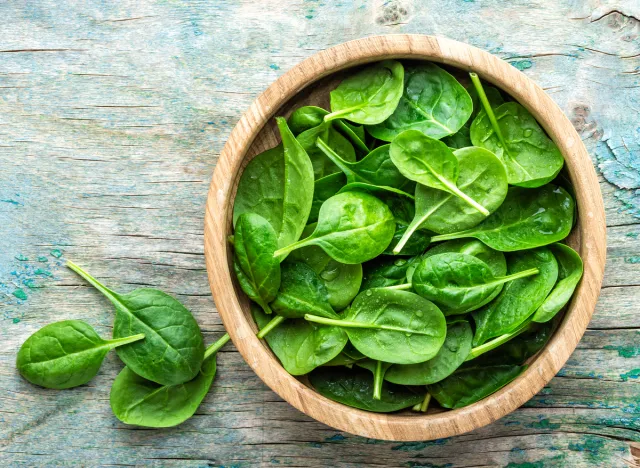
This dark leafy green packs tons of nutrients for very few calories. This allows you to have a hearty serving without considering how it fits into your calorie budget. Spinach contains fiber, vitamins A and C, and is also a plant source of iron and calcium.
Similar to other superfoods on this list, spinach also contains several different antioxidants. Some of these compounds appear to have anti-cancer effects, while others support eye health. Spinach also contains nitrates which can improve blood pressure and reduce risk of heart disease. Enjoy spinach raw in a salad or smoothie, or cook with olive oil and seasoning to add to your favorite soup or omelet, or enjoyed as a simple side dish.
Olive oil

While olive oil contains no protein or carbohydrates, it is an excellent source of healthy unsaturated fats. More specifically, the monounsaturated fat in olive oil can reduce inflammation in your body and appears to positively affect genes linked to cancer.
Olive oil also contains phenolic compounds that have powerful antioxidant properties and beneficial effects on arterial health and cancer, and also promote anti-inflammatory and antimicrobial properties. Olive oil can be used to dress your salad, as the primary oil to sauté vegetables, as a swap for other oils in your baking, and drizzled over grains to enhance the nutrient density and flavor.
Chia seeds
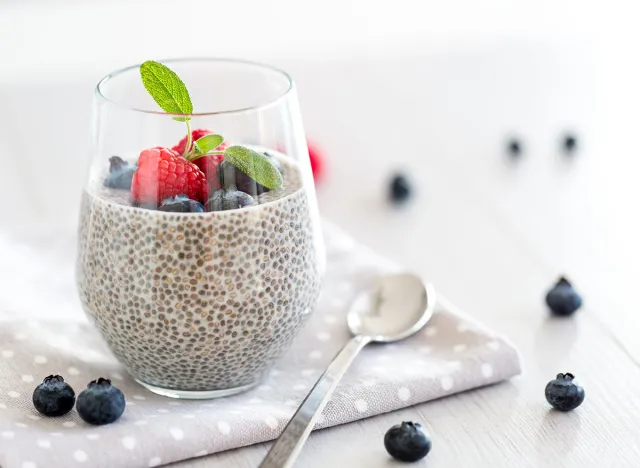
Seeds of all types have gained popularity recently due to their nutrient density. Chia seeds contain protein, fiber, and Omega-3 fats. These unsaturated fats have anti-inflammatory properties and may also promote mental health due to their antidepressant and antianxiety effects. Additionally, omega-3 fats may slow the mental decline often seen with aging. Chia seeds can be added to your bowl of oatmeal and fruit, sprinkled into a smoothie with berries and leafy greens, or used as the main ingredient in overnight chia pudding.
Nut butter
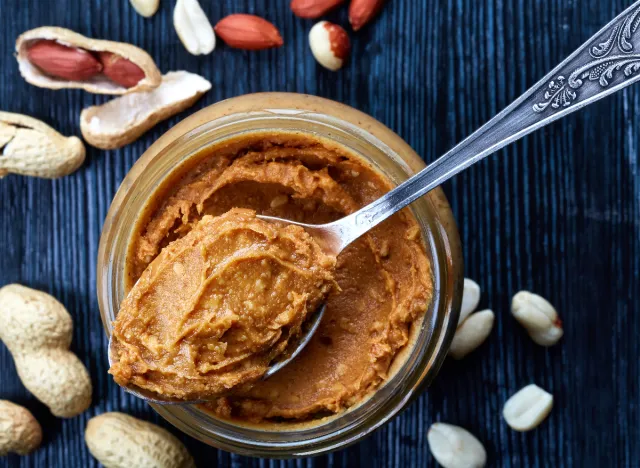
A favorite food for many, nuts are a superfood, too. While nuts can of course be enjoyed in their whole form, nut butter makes this nutritious food even more versatile. Packed with protein, fiber, unsaturated fats, and a wide variety of nutrient, nut butter poses many health properties. Nuts benefit the brain health and cognition, and may also lower the risk of cardiovascular disease. Nut butter can be enjoyed on whole grain toast as part of a meal, spread on an apple to create a balanced snack, or mixed into your oatmeal for a boost of fat and protein.
Salmon
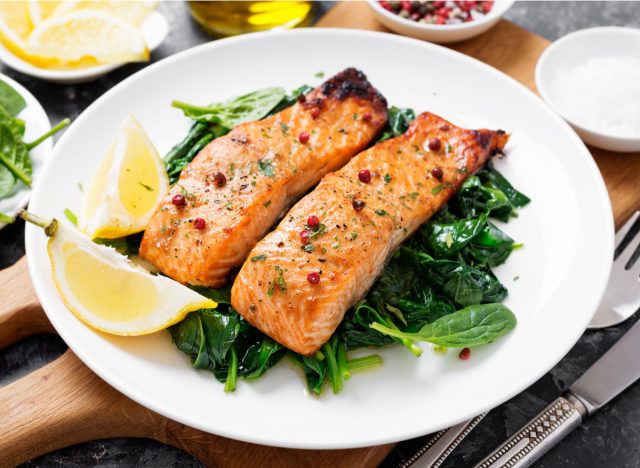
Packed with protein and known for its health benefits, salmon is another source of Omega-3 fat. Two forms of Omega-3 fat, eicosapentaenoic acid (EPA) and docosahexaenoic acid (DHA) can reduce the risk of cancer and may benefit the cells lining your arteries. Salmon is also a source of complete protein and is loaded with selenium, another antioxidant. For a low-prep way to eat more salmon, grab a pack of smoked salmon on your next grocery visit and enjoy it over salad, in sandwiches, or with your morning eggs. Salmon can also be purchased canned and combined with olive oil mayo for a spin on tuna salad.
- Source: https://www.nccih.nih.gov/health/antioxidants-in-depth
- Source: https://pubmed.ncbi.nlm.nih.gov/26501271/
- Source: https://www.ncbi.nlm.nih.gov/pmc/articles/PMC7074153/
- Source: https://pubmed.ncbi.nlm.nih.gov/25411276/
- Source: https://pubmed.ncbi.nlm.nih.gov/26724486/
- Source: https://fdc.nal.usda.gov/fdc-app.html#/food-details/171705/nutrients
- Source: https://www.ncbi.nlm.nih.gov/pmc/articles/PMC8030699/
- Source: https://www.ncbi.nlm.nih.gov/pmc/articles/PMC7373821/
- Source: https://www.ncbi.nlm.nih.gov/pmc/articles/PMC6578444/
- Source: https://www.ncbi.nlm.nih.gov/pmc/articles/PMC6578444/
- Source: https://pubmed.ncbi.nlm.nih.gov/20446114/
- Source: https://pubmed.ncbi.nlm.nih.gov/25711533/
- Source: https://pubmed.ncbi.nlm.nih.gov/7933422/
- Source: https://pubmed.ncbi.nlm.nih.gov/22019438/
- Source: https://pubmed.ncbi.nlm.nih.gov/16484595/
- Source: https://pubmed.ncbi.nlm.nih.gov/15642702/
- Source: https://pubmed.ncbi.nlm.nih.gov/19079898/
- Source: https://pubmed.ncbi.nlm.nih.gov/21784145/
- Source: https://pubmed.ncbi.nlm.nih.gov/17685742/
- Source: https://pubmed.ncbi.nlm.nih.gov/21784145/
- Source: https://pubmed.ncbi.nlm.nih.gov/19523795/
- Source: https://www.ncbi.nlm.nih.gov/pmc/articles/PMC7071526/
- Source: https://pubmed.ncbi.nlm.nih.gov/32233756/
- Source: https://www.ncbi.nlm.nih.gov/pmc/articles/PMC4418048/
- Source: https://pubmed.ncbi.nlm.nih.gov/32778459/









